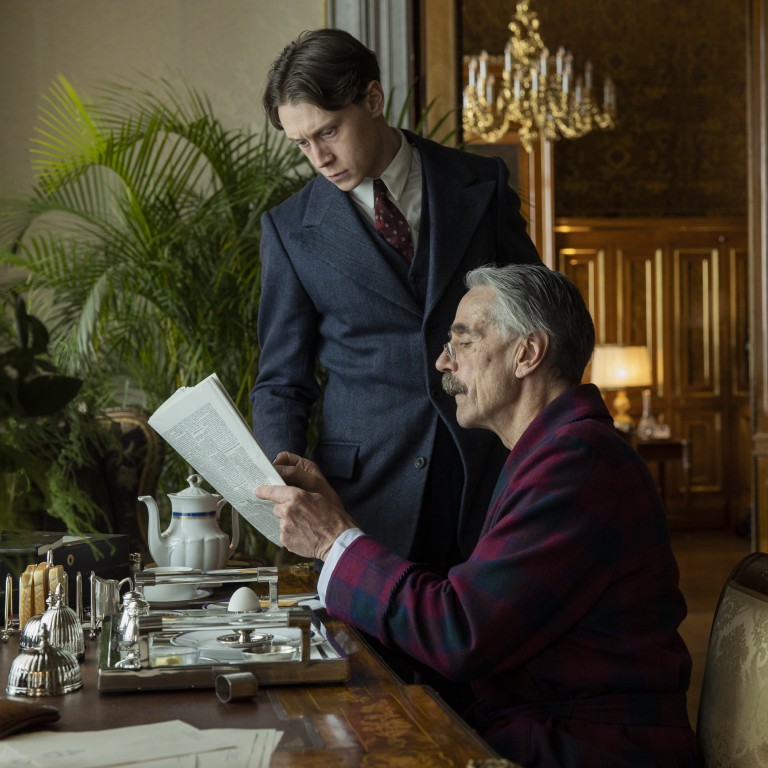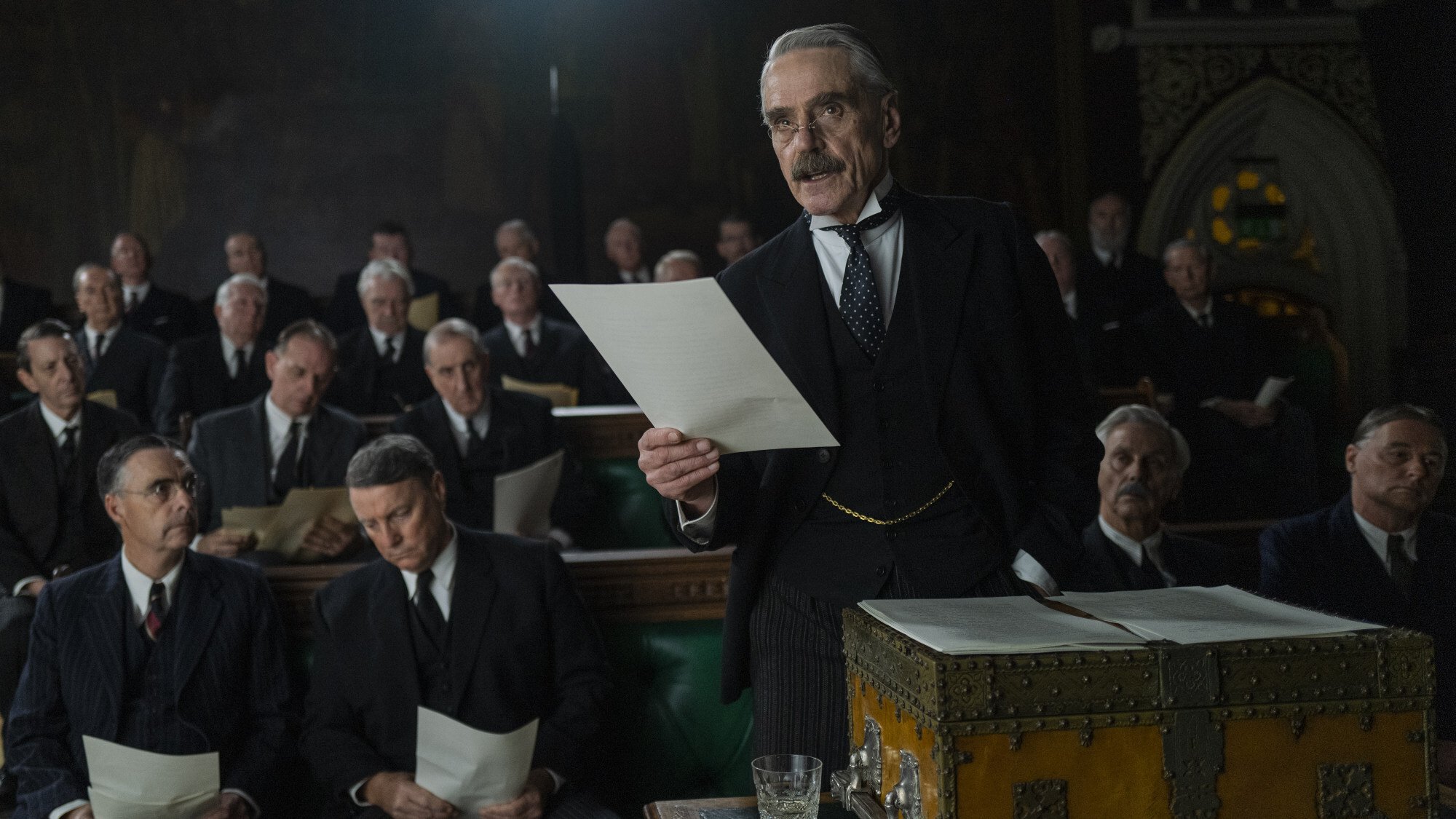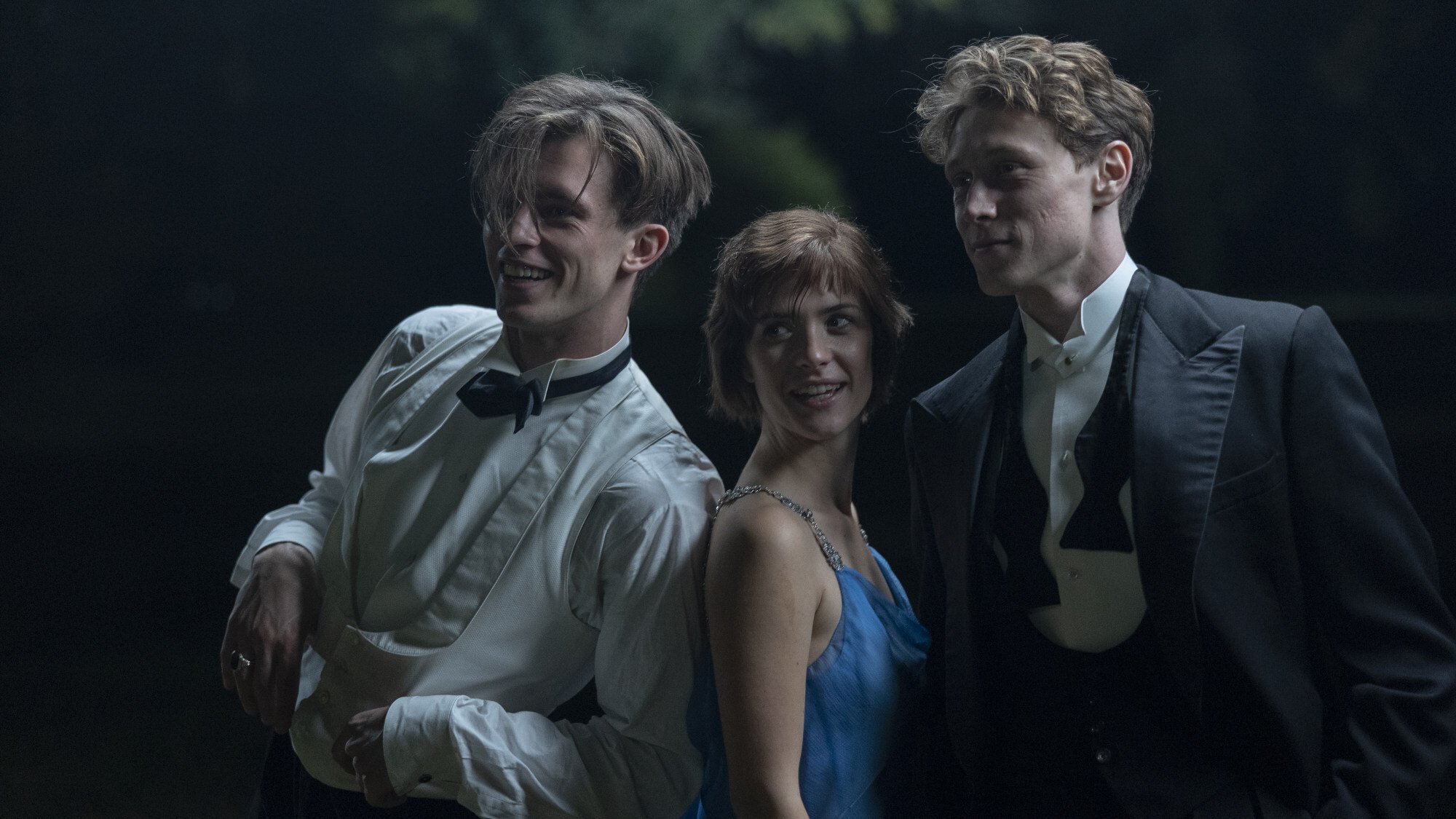
Review | Netflix movie review – in Munich: The Edge of War, Jeremy Irons and George MacKay re-enact a big moment in second world war history
- Neville Chamberlain (Jeremy Irons) travels to Munich in 1938 for talks with Adolf Hitler to head off conflict in Europe; the British leader fails, as we know
- George MacKay plays an aide who uses the trip for some espionage. Rather than rewrite history, the film derives its tension from the details of the event
3/5 stars
A year before the outbreak of the second world war, British Prime Minister Neville Chamberlain travelled to Munich to meet German Chancellor Adolf Hitler in the hope of brokering a peace that would prevent Europe being once again sucked into a lengthy and debilitating conflict.
The ultimately futile Munich Agreement provides the historical backdrop for Christian Schwochow’s political thriller Munich: The Edge of War, in which a young British diplomat (George MacKay) is tasked with accompanying Chamberlain (Jeremy Irons) to Germany in the hopes of obtaining a secret document that can prove Hitler’s intentions to aggressively expand his empire.
Adapted from Robert Harris’ 2017 novel Munich, Schwochow’s film explores the strained relationship between Germany and Great Britain through the evolving friendship of two Oxford University graduates.
Hugh Legat (MacKay) goes on to become Chamberlain’s personal secretary in Downing Street, while Paul von Hartmann (Jannis Niewöhner) is an idealistic German student, whose initial support of Hitler has soured by the time the Wehrmacht invades the Czechoslovakian region of Sudetenland in September 1938.
From inside the German foreign ministry, Von Hartmann and his lover, Frau Winter (Sandra Hüller), obtain a report of Hitler’s plans to invade the rest of Europe, and he reaches out to his old friend Legat for help.

It is a tricky proposition to construct a thriller around an event the audience knows will prove ultimately unsuccessful. However, rather than take the Tarantino route of discarding historical fact in favour of wish-fulfilment fantasy, Schwochow’s film, like The Day of the Jackal or Valkyrie, wrings tension from the meticulous details of the clandestine meeting and the frustrations that arise when those in a position to change the course of history fail to do so.
Irons is perfect as Chamberlain, and almost the same age as the prime minister was when he made his desperate trip to Germany. Racked with guilt for not having fought in The Great War and defiant in his decision to avoid another war, Chamberlain is painted as a noble yet woefully naive relic of a bygone era.

Schwochow tightens the screws effectively as the film builds to its world-altering climax, but does so at the expense of a deeper narrative, not least expanding on the strained backstory between Hugh, Paul, and Lena (Liv Lisa Fries), the third and unfairly discarded member of their exuberant, scholarly triumvirate.
Munich: The Edge of War is streaming on Netflix.

